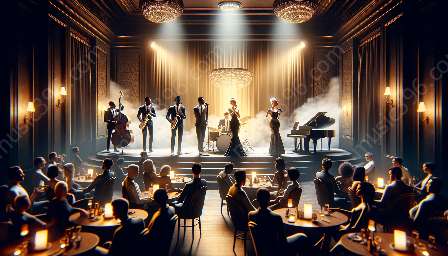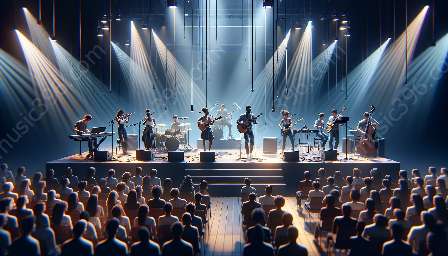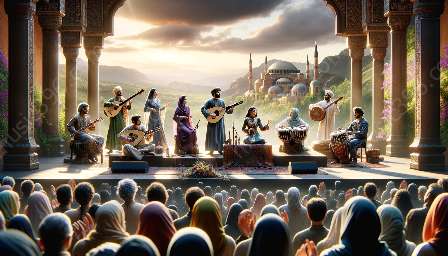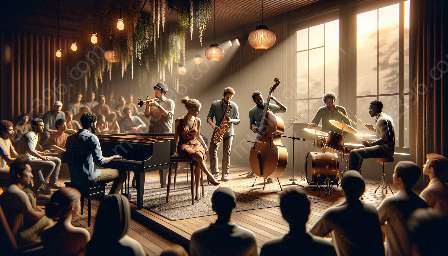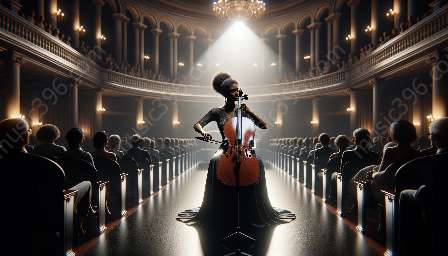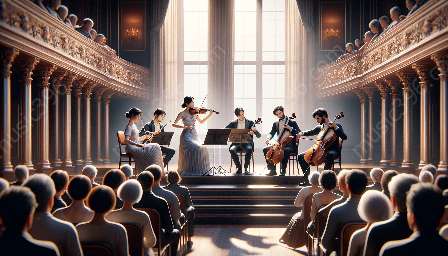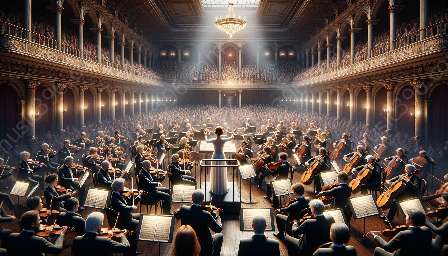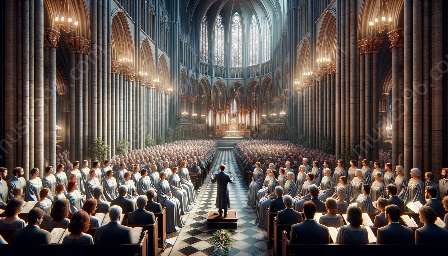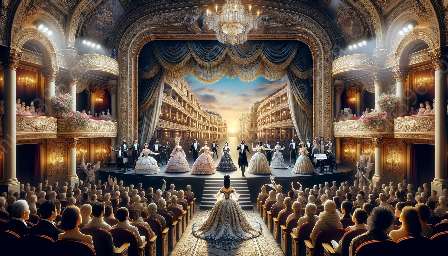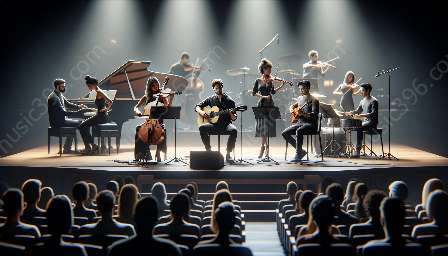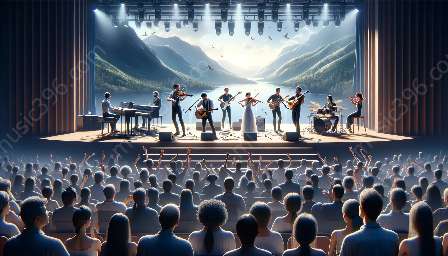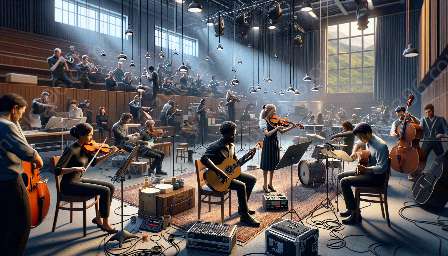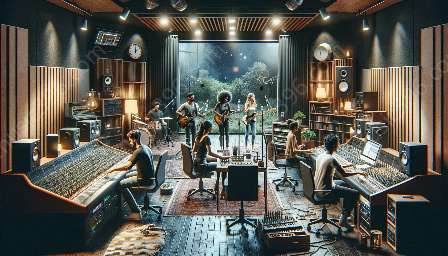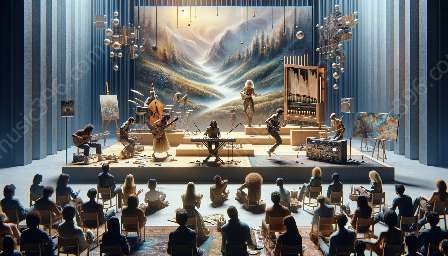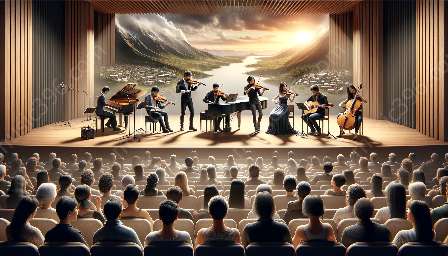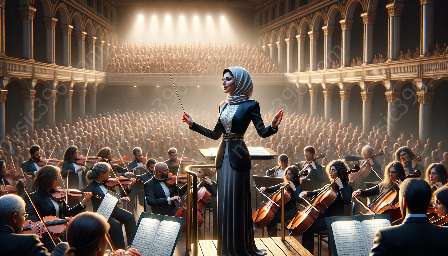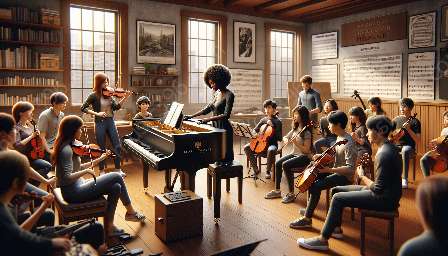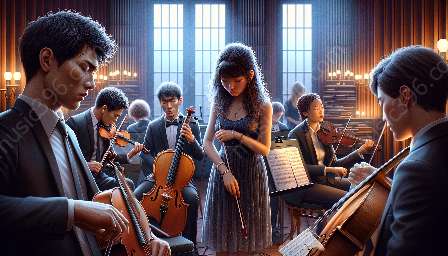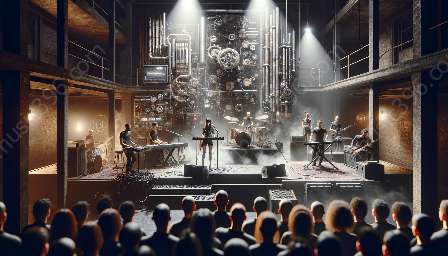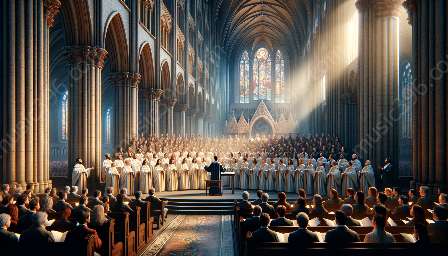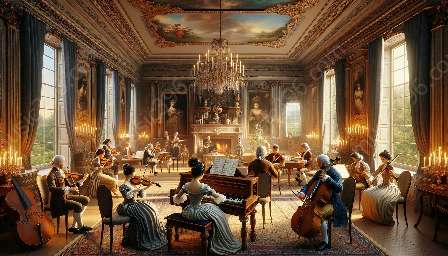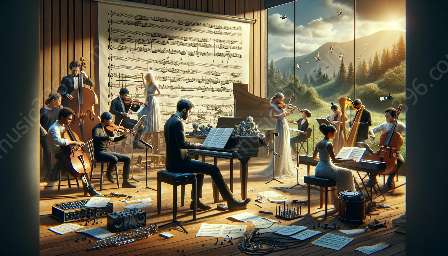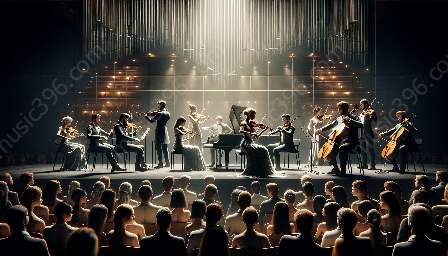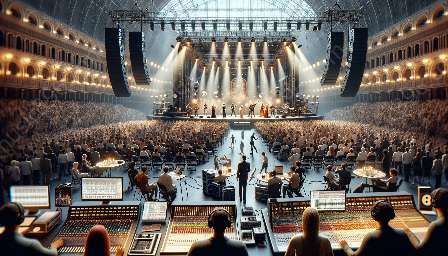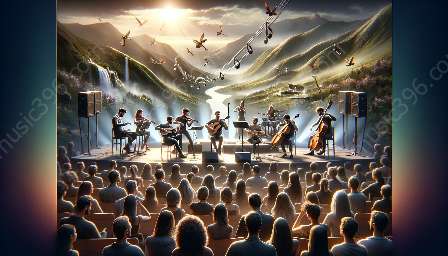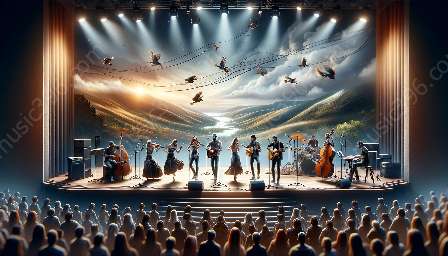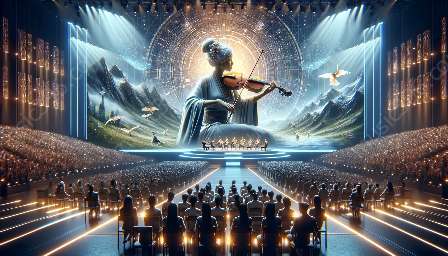As we celebrate cultural heritage through music performance, it is important to understand the significance of merging traditional and contemporary music. This topic cluster delves into the captivating intersection of the two, capturing the essence of diverse cultures and creating an immersive experience for audiences.
Exploring Traditional and Contemporary Music
Traditional music is a reflection of a community's culture, beliefs, and history. It embodies the essence of a particular society and has been passed down through generations, preserving the unique identity of different cultures. On the other hand, contemporary music represents the evolving nature of artistic expression, integrating modern influences and technologies.
When these two seemingly distinct forms of music intersect, it creates a profound melange that not only pays homage to tradition but also breathes new life into age-old melodies, thereby celebrating cultural heritage in a modern context.
Uncovering the Expressive Power of Music
Music performance serves as a powerful tool for expressing cultural heritage. Through the delivery of evocative melodies and rhythms, musicians convey the heart and soul of their cultural heritage, providing a unique insight into the traditions, values, and emotions of their communities.
Contemporary music performance takes this a step further by infusing traditional sounds with innovative interpretations, creating an experience that connects the past with the present. The fusion of old and new allows for a dynamic celebration that resonates with audiences on a profound level.
Capturing the Essence of Diverse Cultures
One of the most compelling aspects of celebrating cultural heritage through music performance is the ability to showcase the richness and diversity of different cultures. Whether it's the hypnotic beats of African drumming, the intricate melodies of Indian classical music, or the soul-stirring tunes of Native American flute, each performance becomes a window into the traditions and customs of a specific cultural group.
Contemporary music performance enriches this experience by incorporating elements from various cultures, creating a harmonious blend that reverberates with global resonance. This celebration not only promotes cultural understanding and appreciation but also fosters unity and solidarity among diverse communities.
The Role of Contemporary Music in Heritage Preservation
In today's rapidly changing world, the preservation of cultural heritage faces numerous challenges. Contemporary music performance plays a pivotal role in this preservation by breathing new life into traditional music, ensuring its relevance in the modern era. By embracing contemporary influences, traditional music becomes more accessible to a wider audience, keeping cultural heritage alive and thriving.
Moreover, contemporary music offers a platform for cross-cultural collaborations, where artists from different backgrounds come together to create innovative sounds that honor and celebrate their collective heritage. This collaborative exchange not only preserves cultural traditions but also fosters a sense of inclusivity and interconnectedness.
Immersive and Transformative Experiences
When cultural heritage is celebrated through music performance, it transcends mere entertainment and becomes an immersive and transformative experience. Audiences are transported on a journey that traverses time and space, as they witness the seamless fusion of tradition and innovation.
The electrifying energy of contemporary music performance infuses new vitality into ancient melodies, creating a sensory feast that engages the senses and ignites the imagination. It is through these experiences that the true power and beauty of cultural heritage are not only preserved but also celebrated in all its resplendent diversity.

